32 Top Benefits Of Neem, Where To Buy It, And Side Effects
It may not be a palatable ingredient, but it is among the healthiest additions to any diet.
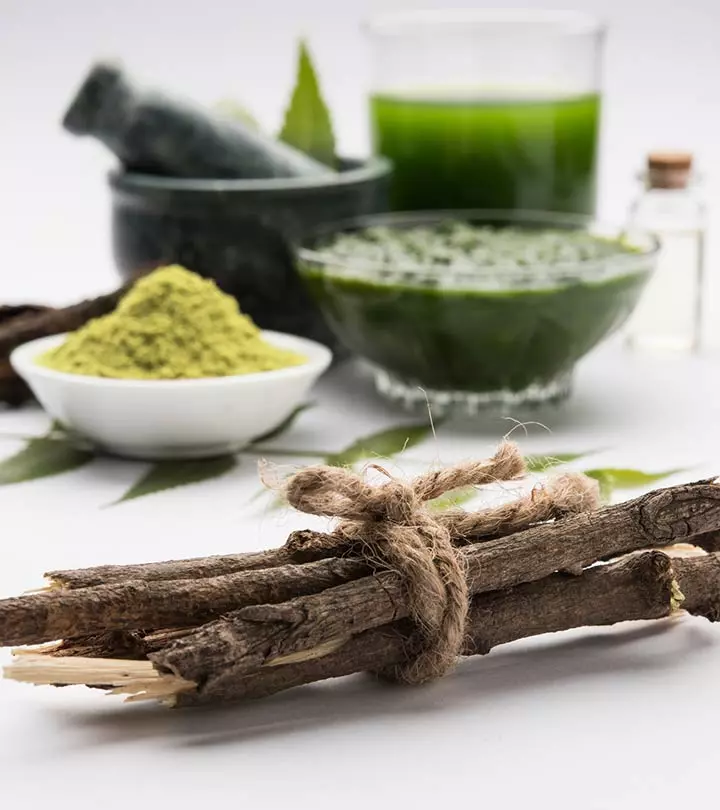
Image: i Stock
The various benefits of neem make it a must-have. Neem has several other names like Vepa in Telugu, Aaru Veppila/Veppila in Malayalam, Veppilai in Tamil, Nim in Hindi, Bevu/Olle Bevu in Kannada, Nim/Nimba Pata in Bengali, Kadulimb in Marathi, and Limba in Gujarati. Neem or Indian lilac (or dogonyaro) leaves help prevent ailments like asthma, diabetes, and digestive problems. This article discusses the benefits of neem, its history, how to use it, and any potential side effects. Take a look.
 Know Your Ingredient: Neem
Know Your Ingredient: NeemWhat Is It?
A tree native to the Indian subcontinent whose seeds and leaves have multiple medicinal properties .
What Are Its Benefits?
It may treat skin infections, promote hair growth, manage asthma, control diabetes, and maintain digestive and oral health.
Who Can Use It?
Neem can be used and consumed by all but not people who are on anti-diabetic medication or for someone who had surgery or is going to have one.
How Often?
You can take it in moderation daily for up to 10 weeks.
Caution
Not safe for children and pregnant and breastfeeding women.
In This Article
What Should You Know About Neem?
The botanical name (or the scientific name) of neem is Azadirachta indica, and it is native to the Indian subcontinent. Typically grown in tropical and semi-tropical regions, the fruits and seeds of the tree are the sources of the much-acclaimed neem oil.
Each part of the neem tree has medicinal value –
Neem leaf – May help manage skin ailments like eczema and psoriasis.
Neem bark – Has potential as a food additive and is often considered a pitta pacifier due to its bitter taste.
Neem fruit and seeds – From which neem oil is extracted.
Neem twig – Used for oral health.
Neem oil – Helps treat skin ailments and other health issues.

And well…
Key Takeaways
- The regular intake of neem oil may help manage asthma and prevent congestion and fever.
- Neem has antimicrobial properties that may treat wounds and skin infections.
- It is also anti-inflammatory and makes for a good remedy for psoriasis and acne.
- Avoid giving neem oil to children. Consuming it can lead to vomiting, drowsiness or coma.
What About Its History?
The medicinal properties of the neem tree have been known in the Indian subcontinent for over 4,000 years. The Vedas called neem as Sarva roga nivarini, which means “one that prevents all ailments”.
Neem was a part of the herbal beauty tradition for thousands of years and is still used as a natural remedy for many ailments. The seeds and leaves and bark of the tree could be converted into fertilizer and material to control pests.
 Did You Know?
Did You Know?And more importantly, neem does wonders to your health.
What Are The Health Benefits Of Neem?
The benefits of the neem tree are many. And talking particularly of its leaves, they have superb antibacterial and disease-preventing properties. Some of the ailments neem leaves prevent and also help treat include asthma, diabetes, and digestive issues. Even the benefits of eating neem powder are so many – it encourages proper fat metabolism and can boosts immunity.
1. Antibacterial Properties
Studies have shown that neem possesses excellent antibacterial properties. And in addition, the leaves also have antifungal and antiviral properties. In fact, the properties in neem are so potent that inexpensive neem supplements are often used to control pathogens in manure (1).
In another study, the extracts of neem had shown great antimicrobial activity against dangerous bacteria like S. mutans, E. faecalis, and S. aureus. Especially, the extract from neem stick had shown the maximum antimicrobial effects (2). The potential of neem extracts to kill bacteria and other microbes presents the possibility of using it as an intracanal (related to the teeth) medication (3).
In another Bangladeshi study where the antibacterial properties of guava and neem were compared, the latter appeared to possess more potent properties with respect to certain bacteria. These properties can be used to control foodborne pathogens and spoilage organisms (4).
Even neem juice (taken from neem leaves) has similar benefits. It contains certain bioactive compounds, nimbidin being the most potent of them. The compound showed great promise as an anti-inflammatory and antibacterial agent.
Dr. Seema Patel, a blogger, recounts using neem for medicinal purposes. She writes, “In the rainy season, as muddy puddles formed, I jumped in them without abandon. Ugly pus-oozing wounds followed (i).” She continues, “My loving mother boiled the neem leaves, and washed my wounds with the medicinal brew.”
2. Works As A Contraceptive
The medicinal uses of neem extend far and wide – so much that it can even be used as a contraceptive. The antifertility effects of neem have been substantiated in certain studies. In one study, rats treated with neem oil remained infertile for various periods. The oil can be used as a spermicidei A sperm-destroying contraceptive called spermicide is inserted vaginally before sexual activity in order to prevent pregnancy. (5).
Neem oil, when applied intravaginallyi It refers to a type of drug administration in which the substance or drug is applied inside the vagina. before sexual intercourse, prevented pregnancy in human volunteers in a study. And neem leaf extract can also reduce male fertility – which could be a downside if not taken care. However, in another study, neem oil had blocked spermatogenesis (the production of male sex cells) in males without affecting the production of testosterone (6).
Numerous studies also consider neem as an inexpensive birth control option. And scientists believe neem can be the ideal contraceptive – as it is readily available, natural, nontoxic, and inexpensive (7).
3. Helps Manage or Arrest Asthma

Neem oil aids in asthma treatment and also helps control phlegm, fever, and cough. Have a few drops of neem oil every day, and increase the dose gradually. This should help. The oil is also used traditionally to cure asthma (8).
4. Aids In Ulcer Treatment
Studies suggest that proton pump inhibitors, a kind of treatment for ulcers and other gastric issues, are not as effective as neem. Neem bark extract has the potential to treat ulcers and gastric hyperacidity (9).
In another study, rats subjected to stress had experienced a reduction in gastric ulcers post neem supplementation. The neem extract was found to increase the amount of gastric mucus, which played a major role in the treatment (10). The nimbidin in neem gives it its anti-ulcer properties (11).
5. Helps Control Diabetes
Studies show that neem can exhibit hypoglycemic (blood sugar lowering) effects. Neem can benefit diabetics by controlling their blood sugar levels. It can prevent and even delay the onset of the disease (12).
Neem can also prevent the oxidative stress caused by diabetes (13). Even earlier studies on the neem plant had shown antidiabetic effects.
6. Maintains Oral Health
Neem oil can play a major role in treating gum disease. Mouthwashes that contain neem extracts inhibit the growth of Streptococcus mutans in the mouth, a bacteria that causes oral issues. In fact, neem oil is added to certain toothpastes as the oil acts as a purifier and an antimicrobial agent.
The neem leaf can also be used to support dental health and prevent dental ailments. The extract can help prevent dental plaque and other dental issues like gingivitisi A type of gum disease that affects the base of the teeth and leads to irritation, redness, and swelling. , cavities, and tooth decay. Chewing on neem bark has also been found to prevent dental disease. The bark can be found in almost all alternative healing stores. You can also use a neem bark-based toothbrush to maintain optimal health of your teeth. Even neem powder can work well – you just have to use it like any other tooth powder.
As per studies, neem twigs can also be used to relieve toothache and clean the teeth. The twigs can even give you shiny teeth. Neem leaves are also rich in antioxidants and build the immune response of the gums and tissues of the mouth (14). They might also help prevent mouth cancer.
7. Helps Treat Leprosy
As per an Egyptian study, neem seed oil can be used to treat leprosyi A persistent but treatable viral condition that results in nerve damage and skin sores. It mainly affects the skin, eyes, and nose. . The study also claims that neem is non-mutagenic, which means it doesn’t lead to any undesirable changes in the DNA of the individual (15).
But beware of the consumption of neem seed oil – as it is said to produce toxic effects. Consult your doctor before using it for this purpose.
8. Aids Digestion

Studies emphasize on the health-alleviating properties of neem. It can be used in the form of powder or liquid extract. And it helps treat digestive ailments – and is especially beneficial for digestion (16).
9. Treats Malaria
According to a Nigerian study, neem leaf extract possesses antimalarial properties. The extract can also be a potential additive to antimalarial drugs that could be useful for the treatment of malaria as well as prevention of the disease (17).
Neem tea infusions were also used as a traditional remedy for malaria (18).
10. Enhances Blood Circulation
As a purifier, neem is known to cleanse the blood and body from within. Consuming neem leaves regularly helps improve blood circulation. You just need to consume 2 to 3 neem leaves mixed in water (along with honey) every day on an empty stomach. Neem leaves may also help regulate hormone levels.
However, there is limited research on this. So consult your doctor before you use neem for this purpose.
11. Treats Nail Ailments
Medical practitioners claim to use neem oil to treat more than 60 types of nail fungus. The oil is applied to the affected area numerous times in a day until the infection heals.
But ensure you keep the oil out of the reach of children – it can cause undesirable symptoms and even fatality in extreme cases.
12. Improves Eye Health
Neem can improve eye health, although there is no concrete research to back it up. You can simply boil some neem leaves, allow the water to cool, and then wash your eyes with the liquid. This helps treat any kind of irritation or redness.
13. Can Be Used In Aromatherapy
The oil extracted from neem flowers is used in aromatherapy – as it has a restorative and calming effect on the body. For this reason, neem flower oil is an important ingredient in various creams and massage oils.
14. Improves Liver Health
Dietary neem flowers were found to have a protective effect on liver carcinogenesisi The process by which healthy cells turn cancerous. It is also known as oncogenesis or tumorigenesis. (19).
15. Relieves Muscle And Joint Pains

Neem has anti-inflammatory and pain-suppressing properties that help relieve muscle and joint pains. It also helps treat swelling in the joints.
You just need to boil the leaves and flowers in a cup of water. Strain the water and allow it to cool. Drinking it twice a day for a month can help reduce arthritis, joint pain, and inflammation.
Regularly massaging with neem oil can also help reduce muscle and joint pains. The massage can also help alleviate lower back pain.
16. Helps Fight Cancer
As per studies, neem leaf extract can help destroy cancer cells of the prostate. Certain compounds in neem leaves can also aid cancer prevention and prevent cancer proliferation. They can also aid in cancer treatment by improving your immune response, eliminating free radicals, and inhibiting cell division and inflammation.
Another protein in neem leaves, called Neem Leaf Glycoprotein, modulates the immune cells and aids in the treatment. Though no human trials have been conducted so far, neem does hold promise in cancer treatment (20).
A study has shown how neem can be effective in the treatment of breast cancer. The compounds in neem were also able to enhance the efficacy of chemotherapeutic agents (21).
17. Regulates Blood Pressure
The curative power of neem leaves helps regulate blood pressure (22). In another study, intravenous administrationi The process during which a drug or other chemical is directly injected into the vein and the bloodstream. of neem leaf alcoholic extract resulted in a significant reduction in blood pressure (23).
18. Lowers Cholesterol Levels
In one study, neem leaf extract at a dose of 100 mg/kg significantly lowered blood cholesterol in a majority of the animals tested (24).
Benefits For The Skin
Neem tree has excellent skin benefits and is used extensively in ayurvedic skin care. Neem face packs can help maintain your skin health without stripping its natural oils, ensuring it stays supple. Moreover, you can boil the neem leaves and later use its water, which can help tone your skin and remove blackheads. Learn more about the benefits of neem for skin below:
19. Clears Acne Scars And Pigmentation
Using neem for this purpose is simple. Just boil a concoction of about 20 neem leaves in half a liter of water till the leaves turn soft and discolored (the water must turn green too). Strain and store in a bottle. Use this liquid as a skin toner by dipping a cotton ball into it and wiping your face with it every night.
You may also use neem in powder form, as there are numerous neem powder benefits, such as soothing and purifying the skin and hair due to its antibacterial and antifungal properties.
Regular use can clear acne scars and pigmentation. You can also use neem powder. Just mix the powder with water and follow the same process as above.
But we are not sure of using neem oil for skin pigmentation. Consult your dermatologist.
Using neem paste on the face can also give you results. Use a paste of neem powder, tulsi, and sandalwood powder mixed with rose water. Apply to your face using a cotton ball, wait for 20 minutes, and rinse.
20. Treats Wounds And Rashes
The topical use of neem oil was found to aid wound healing, especially when used in combination with Haridra capsules, an Ayurvedic medicine brand (25).
In another Indian study, a paste of neem and turmeric applied topically was found to treat chronic ulcers and scabiesi A condition in which tiny mites burrow into the skin, causing itchy skin rashes. It is a contagious disease. (26). Though safe for adults, it might be harmful for children. So take care.
21. Prevents Recurrence Of Blackheads
Blackheads can get embarrassing, but with neem, you probably don’t have to worry. Diluting neem oil with water and applying it to your blackheads can help. But ensure you don’t use more than 2 to 3 drops of neem oil.
Following this remedy regularly will help you get rid of blackheads and also prevent their recurrence.
22. Treats Skin Infection
This can be attributed to its antibacterial properties. Just dilute neem oil with water and add 100 ml of this concoction to your bathing water. This remedy also helps treat skin allergies.
23. Prevents Acne Breakouts

Just take 10 neem leaves and boil them in some water. You can add little bits of orange peel too. As they become soft, remove them and pound them into a pulp. Apply this on your face and let it sit till it starts drying.
Rinse your face with cold water. This is how you can use neem tea for acne.
This face pack will help in clearing acne and preventing breakouts. It also helps in getting rid of whiteheads and blackheads.
You can also use neem powder for acne. Just make a paste of the powder and use it in a similar way. And so does neem water – just add about 20 neem leaves to half a liter of water and boil. Strain the water and store. Apply this water to your skin using a clean cotton ball.
And in case you have dry skin, you can add a little amount of honey and yogurt to this pack.
24. Makes Skin Glow
Regular use of a paste of neem leaves and turmeric can clear your skin and give it that lost glow. Adding some grated cucumber can only make everything better.
This mask can be used for face whitening too. You can even leave neem paste on your face overnight. Just make a paste of the leaves and apply it on your face. Sleep on your back and take care not to soil your bedspread/pillow.
25. Treats Skin Dryness
Guess what – neem has amazing moisturizing properties. It helps get rid of dry skin without making it too oily – hence, offering a balancing effect. Simply mix neem powder with a few drops of grape seed oil and apply to your face.
You can also use neem for itchy skin. Cleansing your skin with a gentle neem soap or dabbing the area with neem tea (soak neem tea bags in water and use it) can help you get rid of the irritation.
26. Delays Signs Of Skin Aging
The compounds in neem give it its regenerative properties that help the skin fight pathogens below the surface, thus keeping the skin supple and young for a longer time.
Applying diluted neem oil to your face or adding neem powder to your face packs can delay the signs of aging and keep your skin healthy.
27. Helps Treat Psoriasis
Neem oil works wonders for psoriasis. The most common problem associated with this disease is dryness and scaling. Neem oil helps in getting rid of the itchiness and irritation. It also helps in keeping the skin moisturized, thus reducing the dryness and scaling.
The antibacterial properties of the oil also prevent the development of any further skin infections (like eczema). Moreover, you can use neem for eczema treatment, as its anti-inflammatory properties can help reduce flare-ups and relieve itching and redness.
28. Eliminates Under-Eye Dark Circles
Neem helps in reducing the pigmentation and acts as a moisturizing agent, and hence, is the perfect solution to this problem.
Just mix neem powder with water and apply it beneath the eyes. Ensure it doesn’t get into your eyes. Wash it off after 15 minutes. Do this every day to see the difference.
What Are The Benefits For Hair
Using neem leaves for hair can give you great results. Even neem powder is used in many home remedies and DIY hair care practices for healthy hair. Its antimicrobial and immune-boosting properties keep your hair healthy.
29. Enhances Hair Growth

The regenerative properties of neem oil for hair can help reduce hair loss. Massaging your scalp with neem oil can help increase blood circulation in the scalp and boost hair health.
You can also mix neem oil with any of your favorite carrier oils (like olive, coconut, jojoba, etc.) as well.
Using neem leaves with coconut oil can have greater benefits for your hair. Boil neem leaves till they are soft and mash and mix them in coconut oil. Apply the oil mixture on your hair and shampoo as usual after 1 hour.
Even neem paste does wonders – and if you are wondering how to apply neem paste to your hair, this is it – grind some fresh neem leaves to a paste. Add some more water if required. Apply the paste to your hair, from the root to the tip and to the scalp too. Leave it on for 30 minutes and then shampoo as usual.
Washing your hair with neem water can also have desirable effects.
 Quick Tip
Quick Tip30. Conditions Hair
Just like how neem can be used to moisturize dry skin, it can also be used to condition dry and frizzy hair. Make a paste of neem leaves boiled in a mixture of water and honey. Apply it to the hair, and then follow it up with a regular hair wash. Your dry tresses will be well-conditioned, dandruff-free and frizz-free.
Wondering how to use neem powder for hair? Well, just make a paste of the powder mixed with water, and to this, add a few drops of olive oil or almond oil. Apply the paste to your scalp. If you have an oily scalp, you can avoid the oil.
31. Improves Scalp Health
Another hair mask that will help deep condition your hair and improve scalp health can be made by mixing neem powder with amla powder, shikakai powder, water, and lemon juice. Apply this to your hair and let it sit for 30 minutes before you wash it off with your regular shampoo.
The ingredients in the pack will help keep scalp problems at bay while retaining the moisture of the hair and preventing dryness. Additionally, you may use neem for dandruff treatment. Thanks to its excellent anti-inflammatory properties, neem may help reduce flakiness and keep your scalp nourished and clean.
32. Helps Prevent Baldness
Most of us believe that baldness is a cosmetic issue. But the lesser-known fact is that baldness can also be a result of some long-term treatment with heavy medications. And such cases of baldness can be cured by using neem.
Neem makes the hair stronger and might also restore lost hair.
However, consult your doctor on this. Regular use of neem as a hair mask and neem water as a rinse promotes hair growth. Neem also triggers the normal functioning of the scalp to ensure regrowth of hair.
You’ve seen the benefits of neem. Now in case you are wondering where to buy neem…
Where To Buy Neem
The simplest way to procure neem leaves is to search for the tree in your neighborhood. In case you don’t find a neem tree, you can go to your nearest supermarket. But before that, ensure you plant a neem sapling, though. Using neem twigs or leaves is a better option than plastic brushes or packaging, to support environmental sustainability.
You can buy neem oil and mouthwash online – but again, since supplements are not FDA regulated, look for organic, nonGMOi A term to certify products that are developed without genetic engineering, that is, not derived from genetically modified organisms. , GMP and 3rd party tested products.
Even neem tablets/supplements are said to have similar benefits. Neem tablets are believed to be especially beneficial for the skin (do consult your doctor though).
With regard to dosing, there are no specific guidelines, thus do talk to your health care provider to review natural medicine database research information.
Storing neem leaves the right way is key to ensuring they last long. Learn more in the next section.
How To Store Neem Leaves
- Pick fresh neem leaves in the morning when their essential oils are the most concentrated.
- Wash the leaves gently in cold water to remove any dirt or insects. Pat them dry with a clean cloth or paper towel.
- Spread them evenly on a clean, dry surface away from direct sunlight. Allow them to air-dry or use a dehydrator at a low temperature.
- Once dried, store the leaves in an airtight container or a resealable plastic bag. Keep the container in a cool, dark place.
- Ensure the leaves are completely dry to prevent any mold growth.
- Periodically check the stored leaves for any signs of moisture or mold. Discard any spoiled leaves to prevent contamination.
Following the right storage practices ensure that your neem stays fresh and ready to use for a long time. Now, let us discuss how to use it safely and effectively. Read on.
Dosage Recommendations
Neem can be used in various forms, including topical applications and oral consumption. Here are some general dosage recommendations:
- Neem oil: Dilute 1-2 teaspoons of neem oil in 1 cup of carrier oil (such as coconut or olive oil) and apply to the affected area.
- Neem tea: Steep 1-2 teaspoons of dried neem leaves in hot water for 10-15 minutes. Drink 1-2 cups of neem tea per day.
- Neem supplements: Follow the dosage instructions on the product label.
We’ve seen what benefits neem has, but there are some side effects to consider.
What Are The Side Effects?
- Unsafe For Children
Oral consumption of neem oil can cause serious harm in infants and children. The side effects can include vomiting, drowsiness, coma, brain disorders, and in certain cases, even death.
- Could Be Unsafe For Pregnant And Breastfeeding Women
In the case of pregnant women, neem can cause miscarriage. And in the case of breastfeeding women, there is not enough information. So, avoid its use and stay safe.
- Autoimmune Diseases
Neem can cause your immune system to become too active and lead to certain autoimmune diseases such as multiple sclerosis. Avoid use if you have any autoimmune disease.
- Other Ailments
Since neem can reduce blood sugar, it can do so way too much in people on blood sugar medication. Neem also causes infertility. It is also advisable to avoid neem at least 2 weeks before an organ transplant or any surgery.
Infographic: Neem: 15 Benefits For Health, Skin, And Hair
Be it the leaves or branches, neem, as a whole, offers amazing benefits for your health, skin, and hair. The leaves have amazing properties that protect us against several conditions while boosting our immune system. Check out the infographic below for a quick refresher on its top benefits.
Some thing wrong with infographic shortcode. please verify shortcode syntaxThe neem plant is native to the Indian subcontinent with unique medicinal values. It is loaded with antibacterial, anti-inflammatory, and antioxidant properties. Neem benefits your health, skin, and hair in many ways. It is even used as an insect repellent in some Indian households, although there is no scientific study to report its effectiveness. It helps manage asthma, aids in ulcer treatment, controls diabetes, maintains oral health, treats leprosy, aids in diabetes management, and enhances blood circulation. It also helps clear scars and pigmentation, treats wounds and rashes, prevents blackheads, and enhances hair growth. However, intake of neem oil may cause vomiting and drowsiness in some and even increase the risk of autoimmune diseases. Hence, use it in moderation to enjoy its benefits.
Frequently Asked Questions
How does bathing with neem leaves in bath water help?
It helps get rid of acne and skin infections and even helps remove body odor.
Why is neem bitter?
Because of its composition. Neem contains numerous complex compounds called triterpenes. Some of these include protoliminoids, liminoids, nimbidin, nimbin, and nimbidiol.
Can I take neem leaf raw?
Yes.
What are the benefits of drinking neem juice every day?
The very benefits we spoke of this in this post. Even having a few neem leaves on an empty stomach can help.
Does neem cause weight gain?
Possibly not. According to a study, neem may have anti-obesity properties that may help keep your weight under control. However, further studies are needed to confirm the claim (27).
Is neem good for liver detoxification?
Possibly. Neem has antioxidant properties which may help cleanse toxic free radicals from the liver. Animal studies suggest that its extract can help lower oxidative stress in the organ and protect it from damage (28). However, further studies on humans are warranted to substantiate the claim.
Can neem damage kidneys?
No. Animal studies suggest that neem may have strong antioxidant properties that could the reduce free radical formation and protect the kidney from damage (29). However, further studies are warranted.
Is neem good for nerves?
Yes, neem has anti-inflammatory properties that may help protect the nerves from further damage. It does so by reducing oxidative stress, lowering levels of inflammation, and protecting cells from premature cell death (30).
Is neem good for urinary tract infections?
Yes, studies suggest that neem has antibacterial properties which may inhibit the growth of bacteria that cause urinary tract infections (31).
Illustration: Top Benefits Of Neem, Where To Buy It, And Side Effects

Image: Stable Diffusion/StyleCraze Design Team
Discover the important reasons for using neem leaves for your skin and hair. Learn about the beneficial nutrients present in the plant that can boost your overall well-being from this video.
Personal Experience: Source
StyleCraze's articles are interwoven with authentic personal narratives that provide depth and resonance to our content. Below are the sources of the personal accounts referenced in this article.
i. The medicinal plant neemhttps://medium.com/phytophilia/the-medicinal-plant-neem-e0bfbbfb1ddd
References
Articles on StyleCraze are backed by verified information from peer-reviewed and academic research papers, reputed organizations, research institutions, and medical associations to ensure accuracy and relevance. Read our editorial policy to learn more.
- “Effect of Neem (Azadirachta indica) on the Survival of Escherichia coli…”. United States Department of Agriculture, Albany, USA.
- “The antimicrobial activity of Azadirachta indica, Mimusops elengi, Tinospora cardifolia…”. Dharamsinh Desai University, Nadiad, Gujarat, India. 2014 June.
- “Comparison of the antibacterial efficiency of neem leaf extracts…”. SMBT Dental College & Hospital, Sangamner, Maharashtra, India. 2013 December.
- “Antibacterial activity of guava (Psidium guajava L.) and Neem (Azadirachta indica A. Juss.) extracts…”.
Department of Microbiology, University of Dhaka, Dhaka, Bangladesh. 2007. - “Neem: A Tree For Solving Global Problems”. National Research Council, Washington DC. 1992.
- “Antifertility effects of neem (Azadirachta indica) oil in male rats…”. National Institute of Immunology, New Delhi, India. 1993 August.
- “Neem: A Tree For Solving Global Problems”. National Research Council, Washington DC. 1992.
- “A rare case of toxic optic neuropathy secondary to consumption of neem oil”. J. J. M. Medical College, Davangere, Karnataka, India. 2014 March.
- “The use of neem for controlling gastric hyperacidity and ulcer”. Indian Institute of Chemical Biology, West Bengal, India. 2009 June.
- “The gastric antiulcer effects of the leaves of the neem tree”. University of Hong Kong. 1993 June.
- “A potential of some medicinal plants as an antiulcer agents”. VNS Institute of Pharmacy, Neelbud, India. 2010 December.
- “A study of hypoglycaemic effects of Azadirachta indica (Neem)…”. US National Library of Medicine National Institutes of Health. 2000 January.
- “Protective role of extracts of neem seeds in diabetes…”. Indian Veterinary Research Institute, India. 2004 February.
- “Azadirachta indica: A herbal panacea in dentistry – An update”. SRM Dental College, Kattankulathur, Tamil Nadu, India. 2015 June.
- “Antifungal activity of different neem leaf extracts…”. Ain-Shams University, Cairo, Egypt. 2011 September.
- “A compilation of Bioactive Compounds from Ayurveda”. National University of Singapore, Singapore. 2008 November.
- “An antimalarial neem leaf extract has both…”. Rocitus Institute of Research, Enugu, Nigeria. 2008 April.
- “Malaria Redux: The History and Ethics of Malaria Eradication…”. Ohio State University.
- “Antifertility potential of Neem flower extract on adult female…”. University of Lagos, Lagos, Nigeria. 2008 September.
- “Neem”. Memorial Sloan Kettering Cancer Center.
- “Neem components as potential agents for cancer prevention and treatment”. oswell Park Cancer Institute, Elm and Carlton Streets, Buffalo, USA. 2014 July.
- “Neem (Azadirachta indica): Prehistory to contemporary medicinal uses to humankind”. Universiti Sains Malaysia, Penang, Malaysia. 2013 July.
- “Pharmacological effects of Azadirachta indica (neem) leaf extract…”. Indian Veterinary Research Institute, Izatnagar, Bareilly. 1994 July.
- “ANTI-CHOLESTEROLAEMIC ACTIVITY OF A FRACTION OF…”. Jadavpur University, Calcutta, India. 1995 January.
- “Effect of Neem oil and Haridra on non-healing wounds”. Banaras Hindu University, Uttar Pradesh, India. 2014 December.
- “Herbal Treatment for Dermatologic Disorders”. Herbal Medicine: Biomolecular and Clinical Aspects.
- “The protective effect of Azadirachta indica (neem) against metabolic syndrome: A review” Iran J Basic Med Sci
- “The Potential Role of Azadirachta indica Treatment on Cisplatin-Induced Hepatotoxicity and Oxidative Stress in Female Rats” Oxidative Medicine and Longevity.
- “Neem Leaf (Azadirachta indica A. Juss) Ethanolic Extract on the Liver and Kidney Function of Rats” Scientific World Journal.
- “Neuroprotective effect of Azadirachta indica standardized extract in partial sciatic nerve injury in rats: Evidence from anti-inflammatory, antioxidant and anti-apoptotic studies” EXCLI Journal.
- “The Antimicrobial Potential of the Neem Tree Azadirachta indica” US National Library Of Medicine
Read full bio of Julie Freeman
Read full bio of Ravi Teja Tadimalla
Read full bio of Arshiya Syeda
Read full bio of Aparna Mallampalli






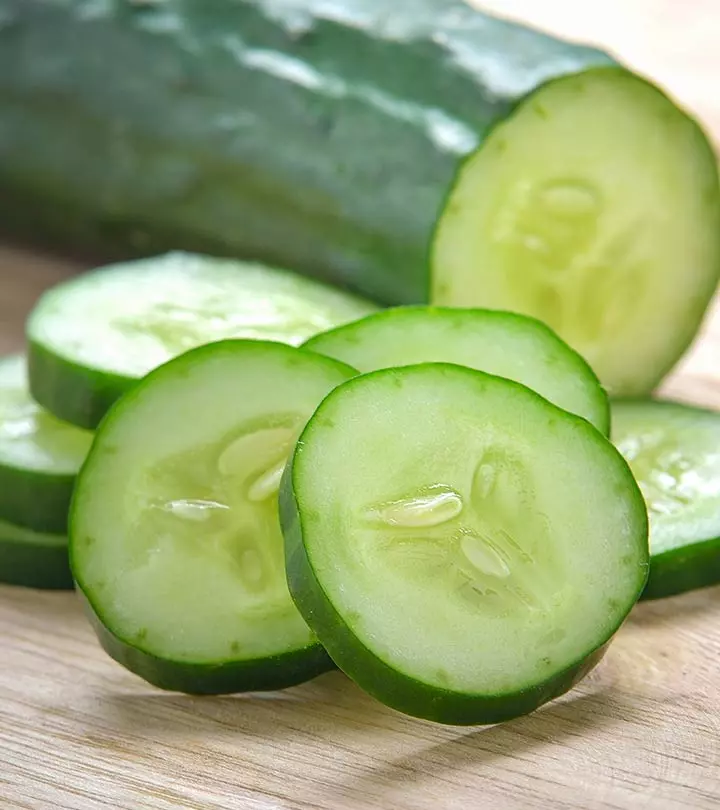
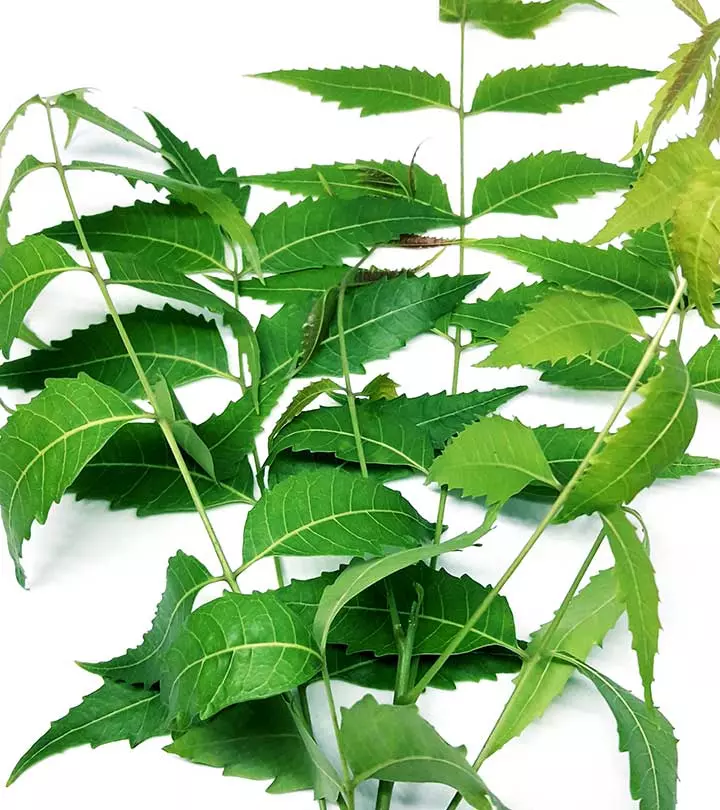
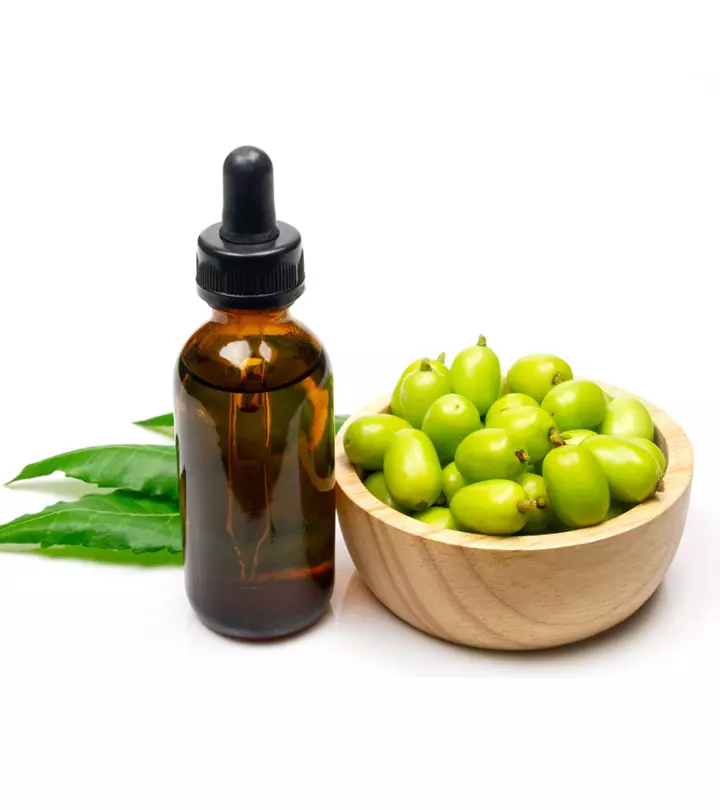
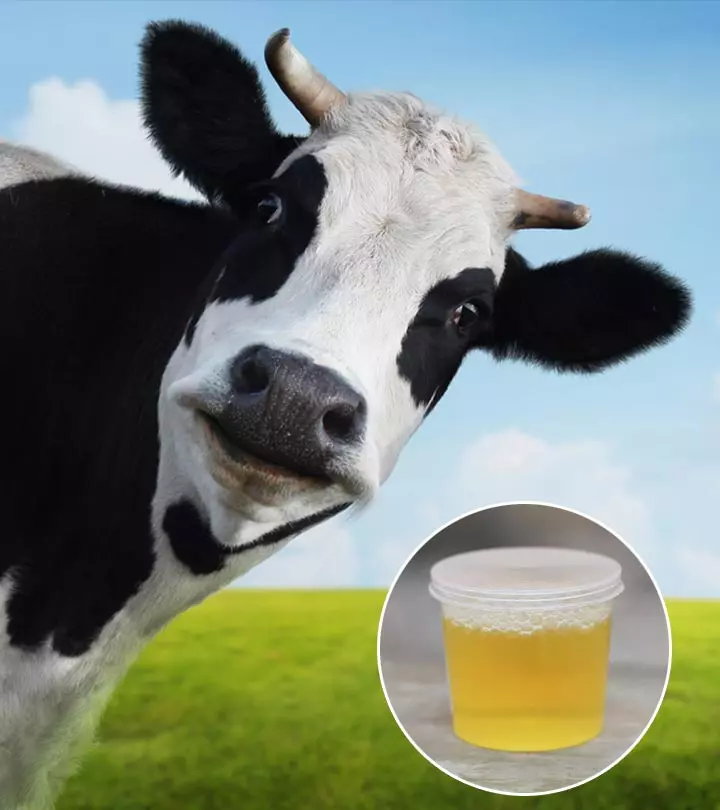

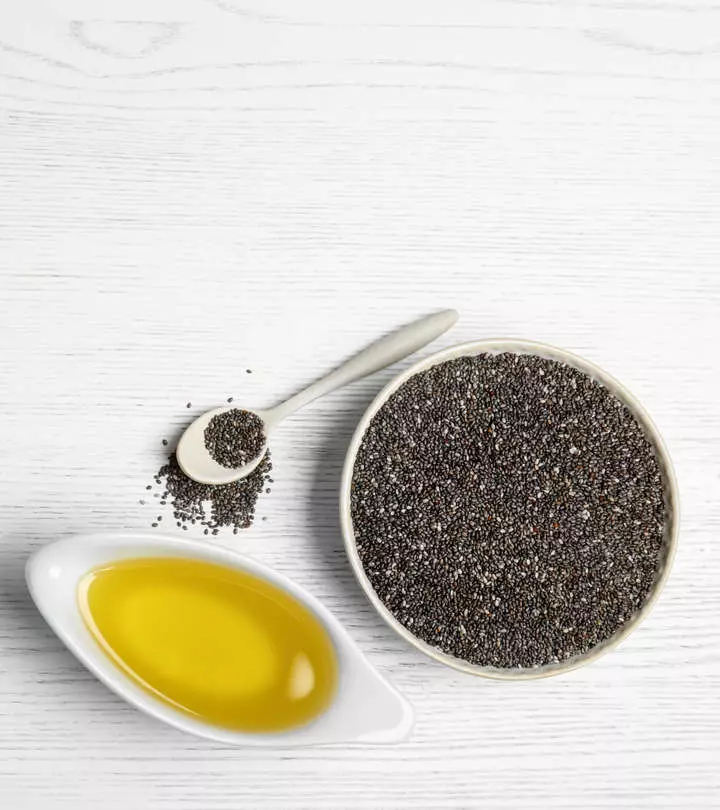
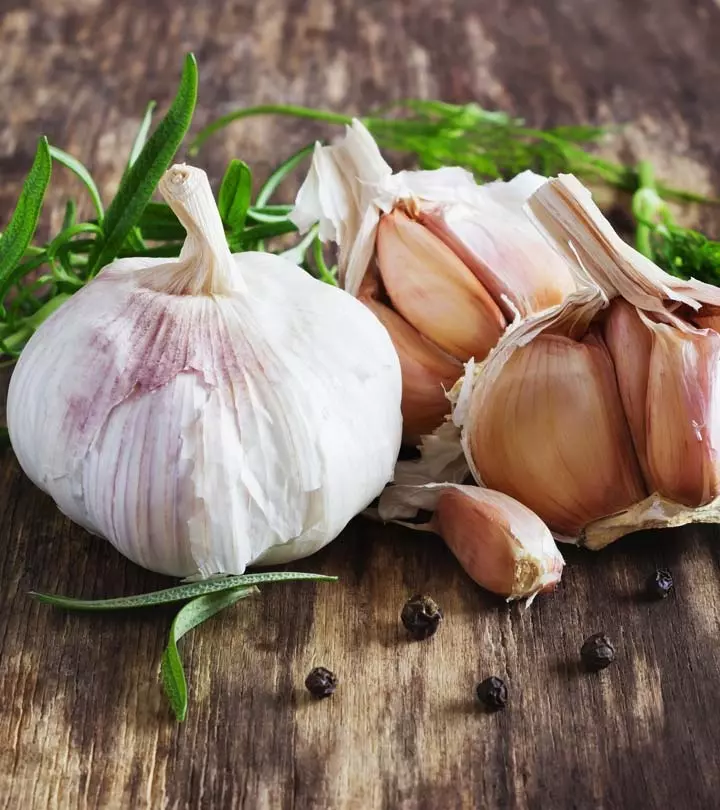




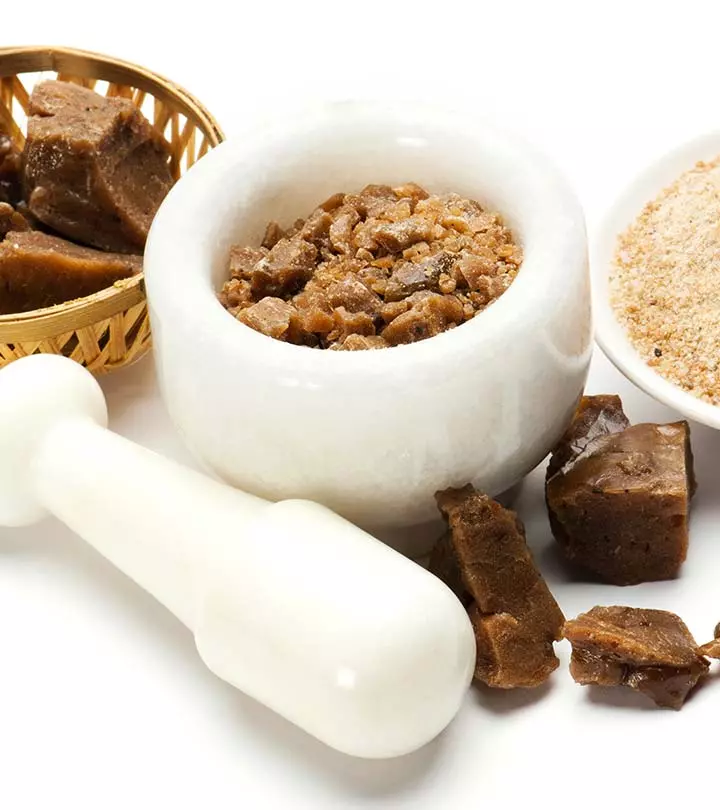

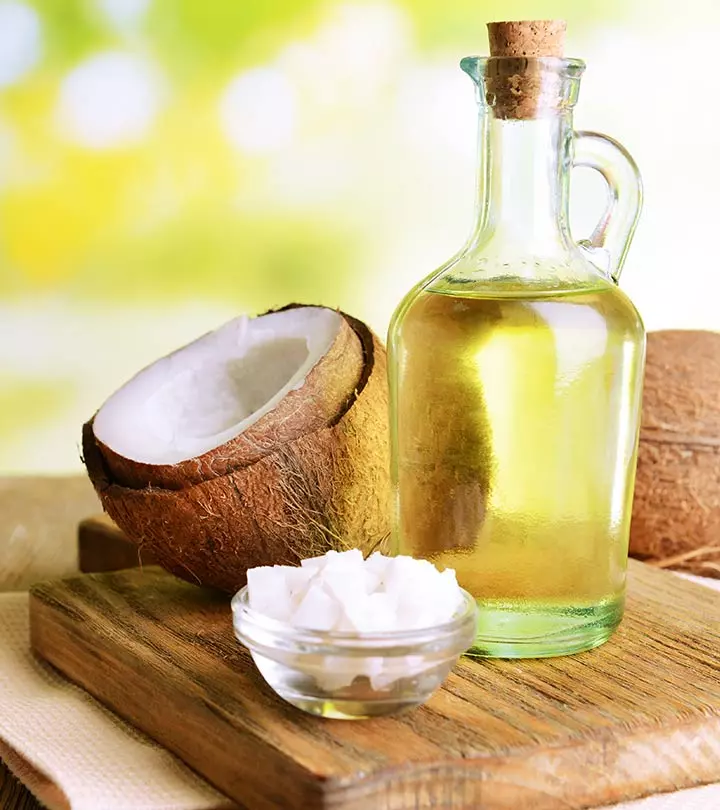



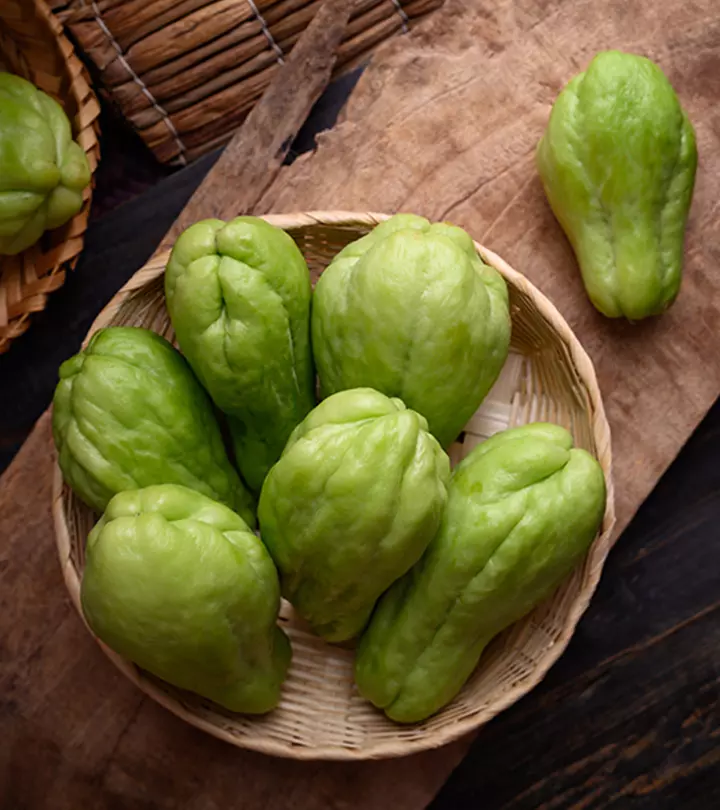


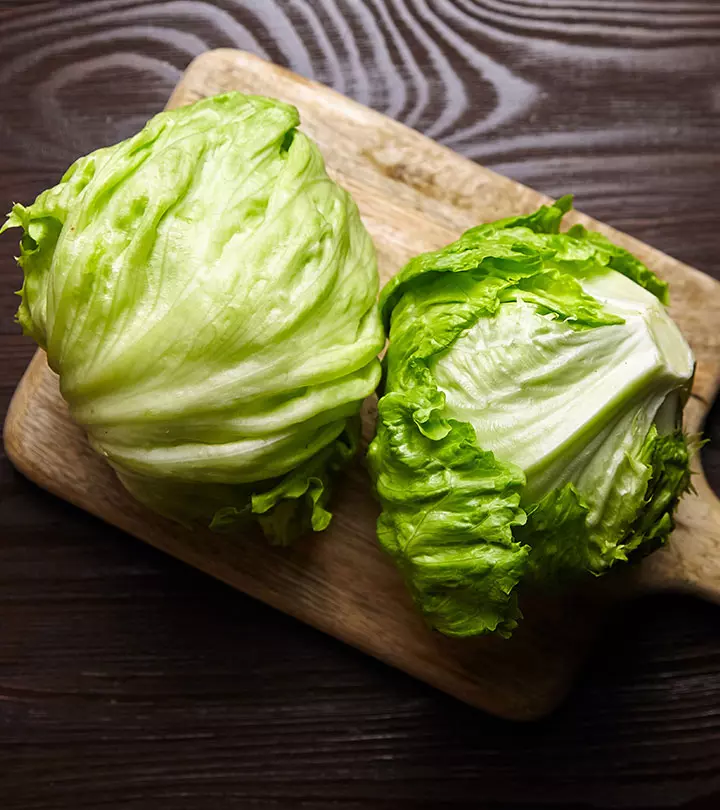
Community Experiences
Join the conversation and become a part of our empowering community! Share your stories, experiences, and insights to connect with other beauty, lifestyle, and health enthusiasts.